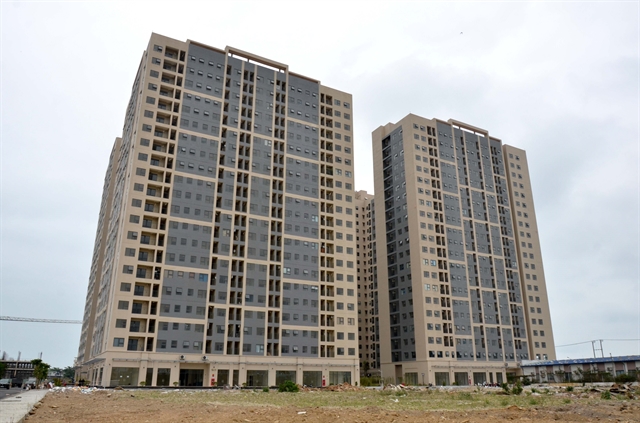The exchange would pave the way for a real-time database whereby financial watchdogs can monitor real estate transactions more effectively.

The establishment of a land use right exchange is vital for the centralised management of the realty sector.
The statement was made by Deputy Minister of Natural Resources and Environment Lê Minh Ngân at a governmental meeting on Monday.
Ngân said a market for land use rights had taken shape but was operating unstably due to the absence of a centralised platform.
The launch of such a platform would help investors obtain realty property more easily and provide the government with the tools to control realty prices more effectively.
"The need to establish a platform on which land use rights can be traded is urgent," said Ngân.
Deputy Prime Minister Trần Hồng Hà was all for Ngân's proposal. He said a centralised national platform for land use rights trading would create a conducive environment for private platforms.
What ministries had to do now to pave the way for the platform, Hà said, is to define its operational mechanics and its responsibilities towards businesses, set the criteria for their admission to the platform, and establish a mechanism under which data among platforms can be transferred.
Prior to the meeting, the Ministry of Natural Resources and Environment and the Ministry of Construction were working on a scheme to launch a platform on which land use rights can be traded.
Nguyễn Chí Thanh, deputy chairman of the Vietnam Association of Realtors, said the exchange would serve as a centralised hub where land use rights can be bought, sold, and exchanged.
However, its significance would extend far beyond transaction facilitation. It would pave the way for a real-time database whereby financial watchdogs can monitor real estate transactions more effectively.
In the long term, it would also deliver a correction to the realty market and thwart any attempt to create speculative bubbles on it.
"A land use right exchange run by realtor associations is not new to many countries, but not so be the one under the State's management," said Thanh.
The deputy chairman also said it would take a lot of time to get the exchange up and running, given the amount of work required to establish its legal framework and digital platform.
Trần Khánh Quang, director of the Việt An Hòa Real Estate Investment JSC, said the exchange would help unlock the full potential of the realty market by bringing sellers and buyers together in a single centralised platform.
Being managed by the Ministry of Natural Resources and Environment and operated by its provincial subordinates, it would also shield them against falling victim to manipulative pricing.
Its advantages are not confined to only sellers and buyers but also extend to governmental bodies by streaming market supervision and facilitating tax collection.
Đặng Hùng Võ, former deputy minister of Natural Resources and Environment, said only when the exchange is established as a State-authorised public service provider could it gain popularity at the grassroots level.
He also said the existing platforms for real estate trading were functioning as private service providers. They have no authority to verify transactions. Verification falls under the competence of notarial offices.
"A land use right exchange would be infeasible unless its ties with land registration offices and notarial offices are established," said Võ.
Realty expert Phan Công Chánh said the real estate platforms and the exchange would differ in that future property can be traded on the former whereas it would not be the case for future land use right on the latter.
Mai Văn Phấn, director of the Department of Land Registration and Information Database, said his department was working to lay the groundwork for the exchange and would soon report to the Prime Minister on its progress. — VNS
- Tags
- land use rights





